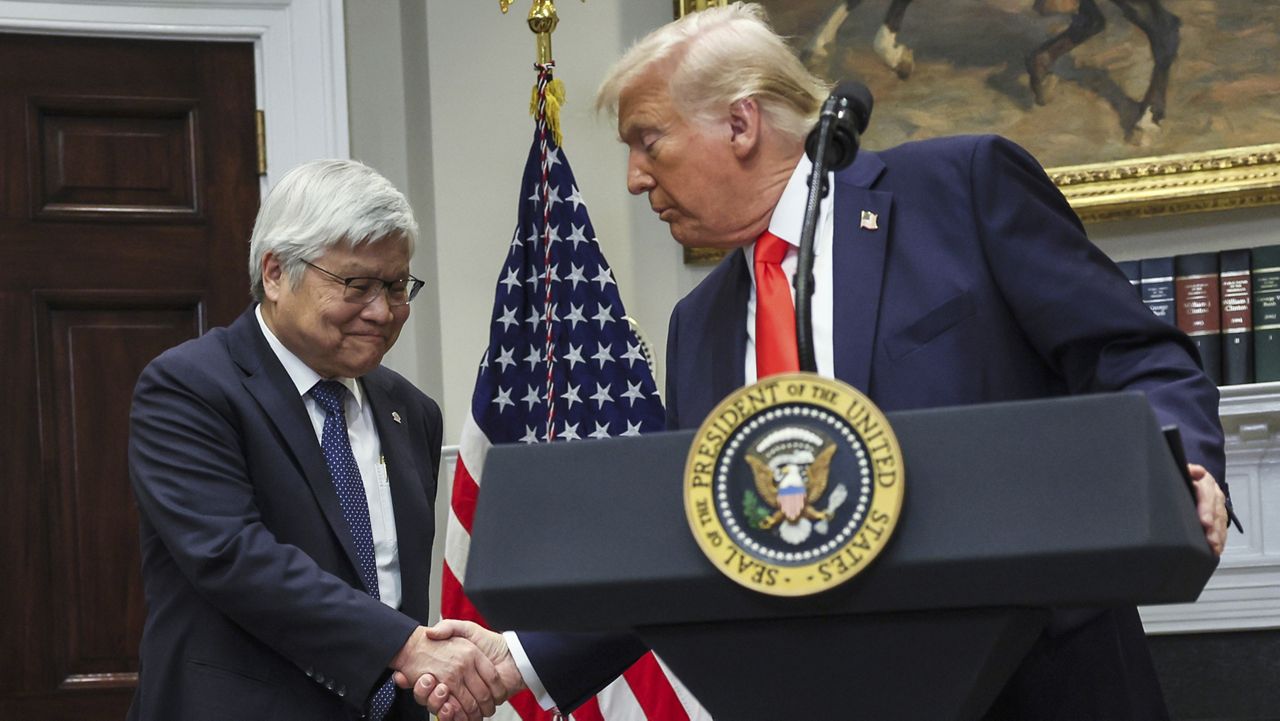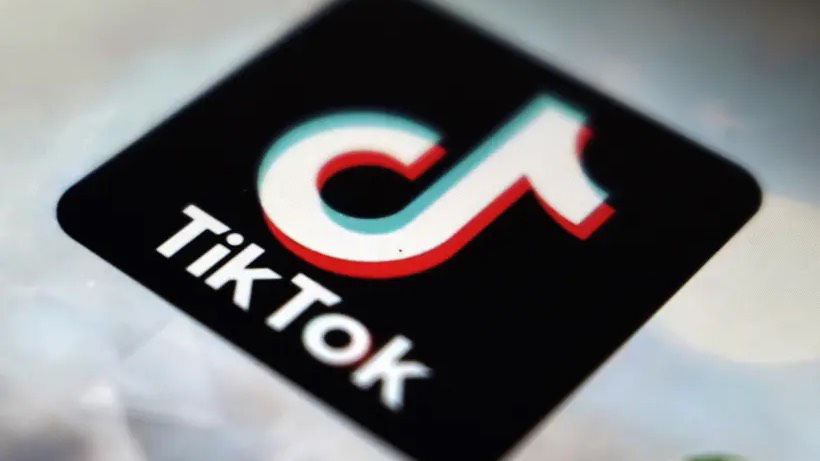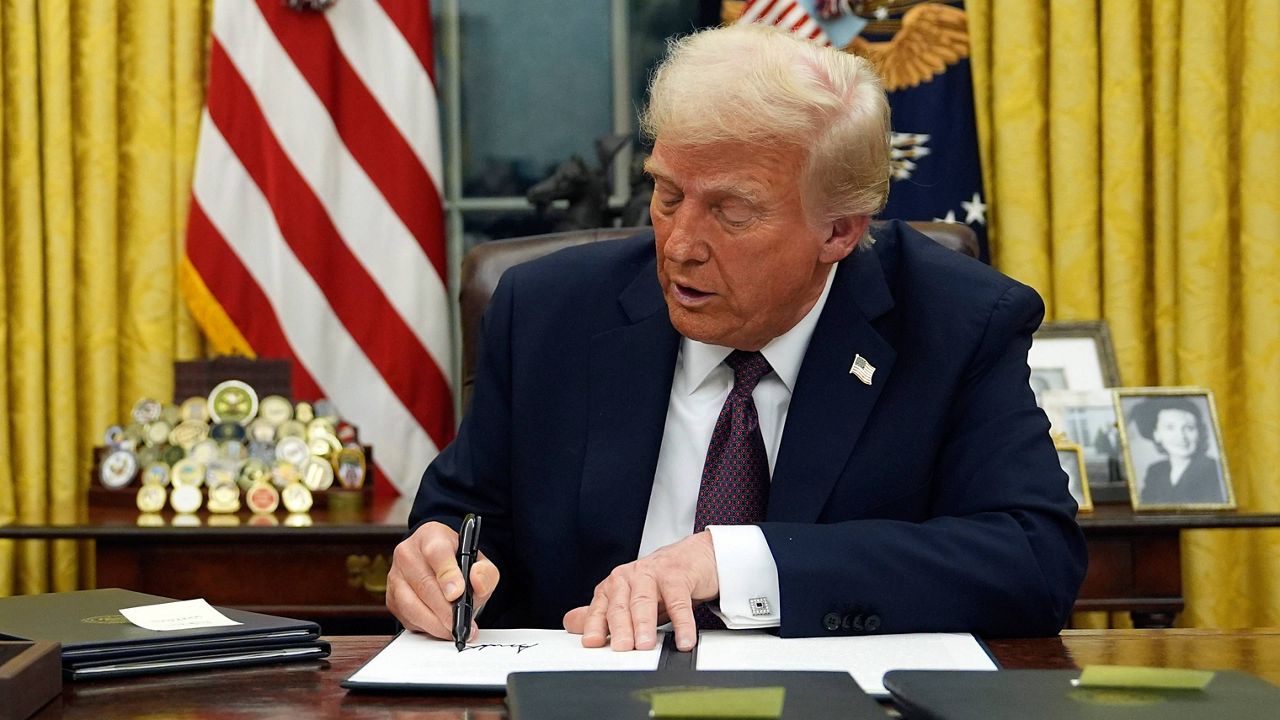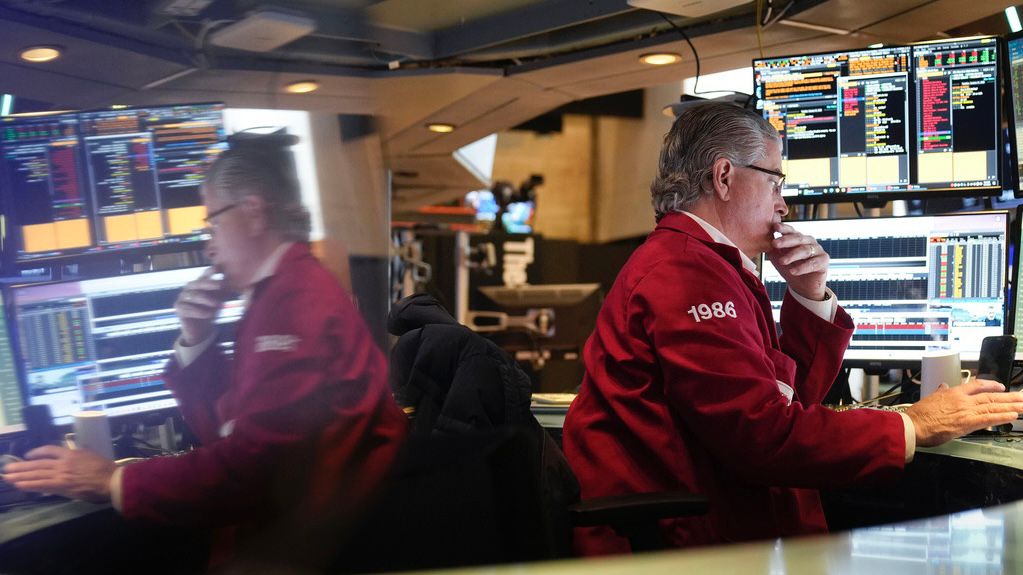WASHINGTON — As President Donald Trump seeks to spur domestic manufacturing and industry through trade wars with longtime allies and geopolitical foes alike, he has also sought to undermine the landmark CHIPS Act, bipartisan legislation passed in 2022 that has spurred hundreds of billions in investment in the U.S. semiconductor industry.
Trump called the legislation “a horrible, horrible thing” in his nationally televised address to a joint session of Congress last month and opened a Cabinet meeting last week by calling the act a “disaster.” On Monday, Trump signed an executive order establishing an “investment accelerator” office within the Department of Commerce that will be, in part, responsible for “administering the CHIPS Program Office, where it will deliver the benefit of the bargain for taxpayers, negotiating much better CHIPS Act deals than the previous Administration,” according to the White House.
But business leaders across the country, nonpartisan analysts and senior Republicans have publicly warned the president that scrapping or handicapping the law would be a mistake and damaging to a U.S. economy already on shaky terrain with Trump’s other economic and foreign policy actions, including the massive round of tariffs he ordered implemented on imports from across the globe on Wednesday.
The CHIPS Act, passed in 2022 with bipartisan margins to provide tens of billions of dollars in federal funding, loans and tax credits for domestic semiconductor manufacturers, has helped spur roughly half a trillion dollars in planned tech investments across the country, according to some estimates.
Bloomberg reported this week Commerce Secretary Howard Lutnick is considering withholding grant funding promised in the CHIPS Act — which both offers direct funding for projects and also massive tax incentives — in order to extract greater investments from companies. The Commerce Department did not return a request for comment on Wednesday.
Already companies are projecting changes to the way the CHIPS Act functions under the Trump administration and adapting their plans accordingly, with the interim CEO of the Durham, N.C.-based semiconductor manufacturer Wolfspeed telling reporters this week that his company won’t be “overly reliant” on CHIPS Act funds or incentives after being promised more than $750 million through the law during the Biden administration.
"We would be able to accelerate our growth and employ more people, of course, with both the tax credits and the CHIPS Act,” Wolfspeed CEO and executive chairman Thomas Werner said, the same month his company laid off at least 180 workers.
And after Trump’s comment during his congressional address, Ohio’s Gov. Mike DeWine and Sen. Jon Husted, both Republicans and staunch supporters of the president, defended the CHIPS Act after local leaders expressed concern that Intel’s planned $20 billion semiconductor plant — the largest private investment in the state’s history — was at risk. The plant in New Albany, Ohio, is expected to create 3,000 permanent jobs, according to the Bipartisan Policy Center.
“For the economic and national security of America, we need to make chips in the USA — I believe this is part of an America First agenda,” Husted said in a statement, according to Roll Call. “Making chips in places like Ohio will make sure that China doesn’t win.”
The president's frequent public displeasure with the law is often offered a parallel with his dislike for his predecessor, President Joe Biden, who considered the CHIPS Act one of the signature accomplishments of his administration.
But as Husted did, prominent Republicans — including Texas Sen. John Cornyn and Rep. Michael McCaul — have called on Trump to reclaim the CHIPS Act as a Republican brainchild that could advance his “America First” agenda. The act is key to protecting U.S. industry and national security, the Texas lawmakers have argued.
“If something were to happen to the supply chain for advanced semiconductors, which is largely based in Asia, we would be in a depression,” Cornyn told the Texas Tribune last month. “It would very negatively affect our national security interests.”
And while Trump has lauded major investments by foreign companies in domestic manufacturing since returning to the White House, repealing or kneecapping the CHIPS Act could discourage future investment as corporations could consider it evidence that the U.S. is not a reliable partner.
Last week, the nonpartisan think tank the Peterson Institute for International Economics published a report that warned if Trump undermines the CHIPS Act and cuts off the promised incentives and funds for computer chipmakers, companies “will cancel or scale down their planned investments” in the United States and “firms in any other industries the US wants to support in the future will then question whether they should invest based on US policies that could be canceled on a whim.”









